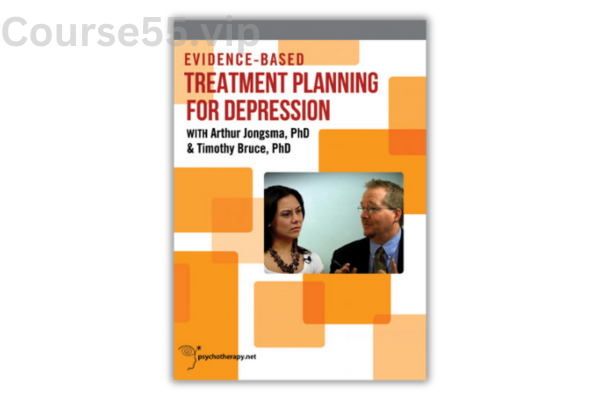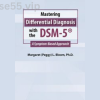-
×
 Understanding the Needs of the Dying: Bringing Hope, Comfort and Love to Life's Final Chapter By David Kessler - PESI
1 × $23.10
Understanding the Needs of the Dying: Bringing Hope, Comfort and Love to Life's Final Chapter By David Kessler - PESI
1 × $23.10 -
×
 Legal Issues in Behavioral Health Maryland: Legal and Ethical Considerations By Lois Fenner - PESI
1 × $23.10
Legal Issues in Behavioral Health Maryland: Legal and Ethical Considerations By Lois Fenner - PESI
1 × $23.10 -
×
 New Rules for Treating Trauma: Integrating Neuroscience for Resilience, Connection and Post-Traumatic Growth By Courtney Armstrong - PESI
1 × $23.10
New Rules for Treating Trauma: Integrating Neuroscience for Resilience, Connection and Post-Traumatic Growth By Courtney Armstrong - PESI
1 × $23.10 -
×
 Writing Email Copy for B2B Companies By AWAI
1 × $23.10
Writing Email Copy for B2B Companies By AWAI
1 × $23.10 -
×
 Evidence-Based Treatment Planning for Bipolar Disorder with Timothy Bruce & Arthur Jongsma
1 × $7.70
Evidence-Based Treatment Planning for Bipolar Disorder with Timothy Bruce & Arthur Jongsma
1 × $7.70 -
×
 Orthopedic Challenges: Expert Strategies to Avoid Harm & Enhance Healing By William Mazzocco - PESI
1 × $23.10
Orthopedic Challenges: Expert Strategies to Avoid Harm & Enhance Healing By William Mazzocco - PESI
1 × $23.10 -
×
 Evidence-Based Treatment Planning for Depression with Timothy Bruce & Arthur Jongsma
1 × $7.70
Evidence-Based Treatment Planning for Depression with Timothy Bruce & Arthur Jongsma
1 × $7.70 -
×
 Ten Best-Ever Anxiety Treatment Techniques By Margaret Wehrenberg - PESI
1 × $23.10
Ten Best-Ever Anxiety Treatment Techniques By Margaret Wehrenberg - PESI
1 × $23.10 -
×
 Maine Legal and Ethical Issues for Mental Health Clinicians By Susan Lewis - PESI
1 × $23.10
Maine Legal and Ethical Issues for Mental Health Clinicians By Susan Lewis - PESI
1 × $23.10 -
×
 Rewire the Anxious Brain: Neuroscience-Informed Treatment of Anxiety, Panic and Worry By Marwa Azab - PESI
1 × $23.10
Rewire the Anxious Brain: Neuroscience-Informed Treatment of Anxiety, Panic and Worry By Marwa Azab - PESI
1 × $23.10
Mastering Differential Diagnosis with the DSM-5: A Symptom-Based Approach By Margaret Bloom – PESI
$219.00 Original price was: $219.00.$23.10Current price is: $23.10.
SKU: C55vip.11191FcTF5VMH
Category: Download
Tags: DSM-5, Margaret Bloom - PESI, Mastering Differential Diagnosis, with the DSM-5: A Symptom-Based Approach
Mastering Differential Diagnosis with the DSM-5: A Symptom-Based Approach by Margaret L. Bloom – Digital Download!

Mastering Differential Diagnosis with the DSM-5: A Symptom-Based Approach By Margaret Bloom – PESI
Overview

Enhancing Diagnostic Expertise with the DSM-5: A Symptom-Focused Approach by Margaret L. Bloom
Accurate diagnosis is a cornerstone of effective mental health treatment. The course “Mastering Differential Diagnosis with the DSM-5: A Symptom-Based Approach” by Margaret L. Bloom is a crucial tool for mental health professionals aiming to refine their diagnostic capabilities. This training presents a systematic approach to diagnosing mental health disorders, equipping practitioners with strategies to handle complex cases. The course blends theoretical knowledge with practical techniques, offering insights into key symptoms across different mental health conditions. Here, we explore the essential elements that make this course a vital resource for mental health practitioners.
Course Framework and Learning Methodology
Designed for a range of mental health practitioners—such as psychologists, counselors, social workers, and marriage and family therapists—the course spans over 6 hours, delivered through both audio and video formats. This diverse approach ensures that it meets the needs of various learning styles. At its core, the course focuses on a four-step diagnostic method, emphasizing symptom analysis. Given the prevalence of diagnostic errors in mental health, this structured methodology helps practitioners navigate complex symptoms and avoid misdiagnosis.
The training guides participants through two distinct phases: the first phase involves compiling an extensive list of potential diagnoses that align with the client’s presenting symptoms. The second phase helps narrow down this list to pinpoint the most accurate diagnosis. This approach is particularly beneficial in a field where symptoms often overlap and complicate diagnosis.
In-Depth Exploration of Core Diagnostic Elements
One of the defining features of Bloom’s course is its comprehensive exploration of critical symptoms related to a variety of mental health conditions, such as anxiety, depression, trauma, substance use, psychosis, and neurodevelopmental disorders. By carefully examining these conditions, Bloom emphasizes the importance of keeping up-to-date with the latest diagnostic criteria, particularly those provided in the DSM-5-TR.
The course also teaches essential skills for mental health practitioners, such as conducting clinical intake interviews and identifying key symptom clusters. Moreover, participants gain valuable experience using online assessment tools, enhancing the accuracy of their diagnostic work. By integrating modern technology into the diagnostic process, Bloom ensures that the course remains relevant in an evolving mental health landscape.
Adapting to New Updates in DSM-5-TR for Effective Diagnosis
A key strength of Bloom’s course lies in its incorporation of the latest revisions to the DSM-5-TR. As diagnostic criteria in mental health continue to evolve, staying informed is not just beneficial, it is essential for avoiding errors. Bloom’s training helps practitioners evaluate symptoms through the lens of current, valid diagnostic categories, which is vital for clinical accuracy.
Research supports the idea that educational programs focusing on diagnostic precision significantly reduce misdiagnosis rates (Kendall et al., 2019). Bloom’s course aligns with this research by underscoring the need for thorough, up-to-date knowledge in differential diagnosis.
Target Audience and Professional Development Opportunities
The course is inclusive, designed to support practitioners with various levels of experience. Its accessibility ensures that therapists, regardless of expertise, can benefit from the material. This inclusivity makes the course highly versatile in a field where clinicians often come from different backgrounds and skill levels.
Upon completing the course, participants earn continuing professional development (CPD) credits, enhancing their qualifications and signaling a commitment to ongoing professional growth. Accumulating CPD credits is critical for meeting licensing requirements and staying informed about the latest developments in the field.
Summary of Key Benefits:
-
Multimedia Learning Materials: A combination of over 6 hours of audio and video content for diverse learning.
-
Two-Phase Diagnostic Approach: A step-by-step process for narrowing down possible diagnoses.
-
In-Depth Symptom Analysis: Detailed examination of symptoms related to anxiety, depression, trauma, and more.
-
DSM-5-TR Integration: Focus on the most recent updates to diagnostic criteria.
-
CPD Credits: An opportunity to earn credits that boost professional credentials.
Final Thoughts
In summary, “Mastering Differential Diagnosis with the DSM-5: A Symptom-Based Approach” by Margaret L. Bloom is an essential tool for mental health professionals seeking to enhance their diagnostic skills. By incorporating a structured diagnostic methodology and real-world case studies, the course offers practitioners the tools to navigate the complexities of mental health diagnoses with confidence. The focus on staying current with DSM-5-TR revisions ensures that the training remains relevant and valuable for those committed to improving diagnostic accuracy in clinical practice. This course offers a robust foundation for those looking to advance their diagnostic expertise, ultimately benefiting both clinicians and clients.
Frequently Asked Questions:
Business Model Innovation: We operate a group buying strategy, allowing participants to share costs and access popular courses at reduced prices. This model benefits individuals with limited financial resources, despite concerns from content creators about distribution methods.
Legal Considerations: The legality of our operations involves complex issues. Although we don’t have explicit permission from course creators to resell their content, there are no specific resale restrictions stated at the time of purchase. This ambiguity creates an opportunity for us to provide affordable educational resources.
Quality Control: We ensure that all course materials purchased are identical to those offered directly by the creators. However, it’s important to understand that we are not official providers. As such, our offerings do not include:
– Live coaching calls or sessions with the course author.
– Access to exclusive author-controlled groups or portals.
– Membership in private forums.
– Direct email support from the author or their team.
We aim to reduce the cost barrier in education by offering these courses independently, without the premium services available through official channels. We appreciate your understanding of our unique approach.
Be the first to review “Mastering Differential Diagnosis with the DSM-5: A Symptom-Based Approach By Margaret Bloom – PESI” Cancel reply
You must be logged in to post a review.
















Reviews
There are no reviews yet.